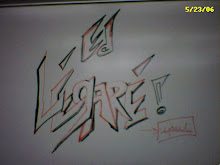In chemistry we study thermodynamics in terms of enthalpy, temperature, entropy, and free energy. When we study reactions we ascertain whether the reaction is exothermic or endo thermic, i.e., is the change in enthalpy positive or negative. If it is endothermic then heat is absorbed in the process and heat (enthalpy) is a reactant in the thermochemical equation. In this case the change in enthalpy is positive. If it is exothermic then heat is emitted into the surroundings and it is a prodeuct in the thermochemical equation. In this case the change in enthalpy is negative.
What does this say about work? An endothermic reaction has work done on it from the surroundings and an exothermic reaction does work on the surroundings. Thje particles of the surroundings slow down during an endothermic reaction and and the particles of the surroundings speed up during an exothermic reaction. It is all about the work...it is all about the particles.
Consider a closed piston with a plunger. If you add heat to it you will speed up the particles and they will expand pushing the plunger up and therefore doing work on the surroundings. Consequently if you remove heat from it you will slow the particles down...they will loose kinetic energy...and the volume will decrease as the surroundings do work on the piston. Everything is about work...and heat...and particles (internal energy)...
The far reaching ramification is that we can not measure the total energy in the universe because we can't seem to stop all the particles from moving...and this includes the subatomic particles. Supposedly absolute zero is defined as the absence of all heat...but, and this is according to Richard Feynmann...heat correlates directly with particle motion...however, if we stop all particles from moving it will includes the subatomic particles and that would violate Heisenberg's Uncertainty Principle because then we could in fact define the position and momentum of a particle simultaneously...so therefore we are always measuring changes in energy.
So I guess absolute zero could be a singularity just like the speed of light and maybe we will never get there...I say maybe...

No comments:
Post a Comment